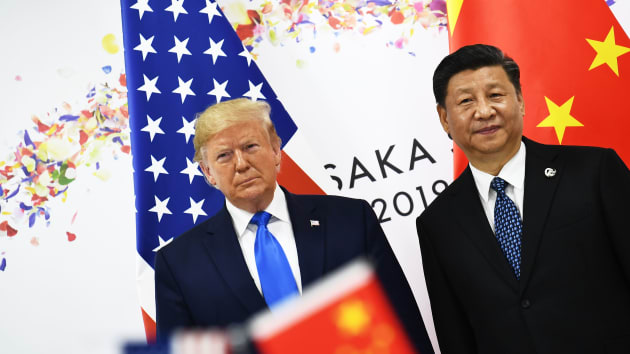
Expectations are rising for a first-stage trade agreement between China and the U.S., despite no clarity on when leaders of the two countries can meet to seal a deal.
“China is willing, on the basis of equal and mutual respect with the U.S., to work together to properly settle areas of common concern and strive for a phase-one trade agreement,” Gao Feng, China’s Ministry of Commerce spokesman, said at a regular press conference Thursday, according to CNBC’s translation of his Mandarin-language remarks.
Gao also said “external rumors” about the trade talks are not accurate, and noted the two trade delegations remain in close communication.
On Thursday, Reuters reported, citing sources, that a so-called phase-one agreement between the U.S. and China may not be completed until next year as Beijing presses for greater reductions in tariffs and the U.S. President Donald Trump’s administration pushes back with its own increased demands.
Separately on Thursday, Bloomberg reported, citing unnamed sources, that China’s lead trade negotiator Liu He said at a dinner speech Wednesday that he was cautiously optimistic about a phase-one trade agreement with the U.S. The report added that Liu told an attendee he was “confused” by the U.S. demands, while remaining confident that a phase-one agreement could be reached.
Trump and Chinese President Xi Jinping were expected to meet on the sidelines of an international summit in mid-November in Chile, until it was canceled due to domestic unrest.
Trade tensions between the world’s two largest economies have festered for more than a year, with both countries applying tariffs on billions of dollars’ worth of goods from the other.
China would like the U.S. to cancel additional tariffs as part of a final trade agreement, and Beijing has indicated a rollback of the duties is a requirement for a phase-one agreement.
Washington would like China to firmly step up its agricultural purchases from the U.S. Trump has also cast doubt on the idea that the U.S. would agree to cut back tariffs as part of an initial agreement, and even threatened more tariffs on China. If no progress is made in trade negotiations, additional U.S. duties on Chinese goods are set to take effect on Dec. 15.
Zhang Yansheng, chief research fellow at the Beijing-based think tank China Center for International Economic Exchanges, is optimistic the U.S. and China will reach a phase-one agreement, given incentives from both sides to do so. Trump needs to appease a domestic constituency ahead of the upcoming elections in the U.S., while China doesn’t want a trade war, Zhang said in a Mandarin-language interview, according to a CNBC translation.
This initial phase of the deal also centers on tariffs, rather than structural issues, which makes an agreement easier to reach at this stage, Zhang said.





























